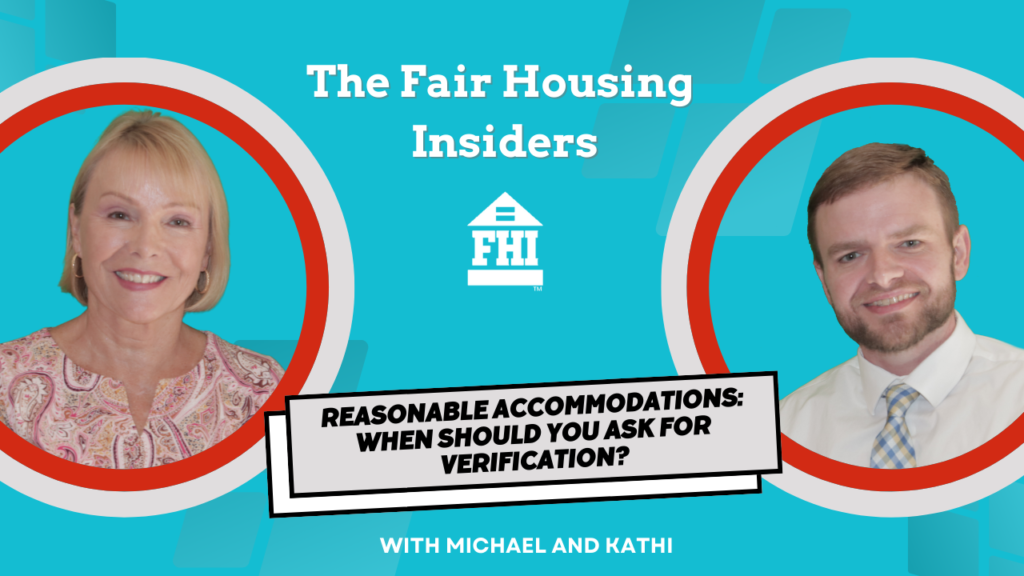Fair housing compliance is a critical aspect of property management, particularly when it comes to reasonable accommodations for residents with disabilities. Housing providers must navigate requests with sensitivity while ensuring they meet legal requirements. A key consideration is determining when to ask for verification, when modifications should be made proactively, and how to approach eviction cases involving residents with disabilities.

When Should You Request Verification for a Reasonable Accommodation?
Property managers are often faced with accommodation requests, and a common question is whether verification is necessary. The Fair Housing Act allows housing providers to request verification in specific situations, but unnecessary inquiries can lead to potential violations.
If a resident’s disability is obvious, verification may not be required. For example, a resident who uses a wheelchair and requests an accessible unit entrance does not need to provide verification because the connection between the disability and the request is clear. However, there are cases where the connection is not immediately apparent. If that same resident requests a ceiling fan as an accommodation, management has the right to request verification to determine the necessity of the modification. The key consideration is whether there is a clear link between the disability and the accommodation being requested.
Proactive Modifications: What Should Management Provide?
While many reasonable accommodations stem from resident requests, some modifications should be made proactively in the best interest of both management and residents. Safety-related modifications, such as providing flashing light smoke alarms for deaf residents, should be implemented without waiting for a formal request. Ensuring that all residents have access to necessary safety features not only meets fair housing compliance but also helps prevent potential liability concerns.
Handling Evictions Involving Residents with Disabilities
Evictions are complex matters, and when a resident with a disability is involved, additional considerations must be taken into account. While having a disability does not grant a resident the right to violate their lease, housing providers must evaluate the situation carefully before proceeding with legal action.
For instance, if a resident with a child who has Down syndrome receives frequent noise complaints, management should investigate whether the noise is truly excessive or if the complaints stem from a neighbor’s hypersensitivity. If the noise does constitute a lease violation, the resident may request a reasonable accommodation, such as additional time to resolve the issue. In such cases, granting an extra opportunity to address the problem is generally advisable and can help prevent fair housing complaints.
Fair Housing Compliance Requires a Thoughtful Approach
Managing reasonable accommodations is not about granting every request without question but rather about assessing each situation fairly and legally. Property managers must balance their responsibilities to all residents while ensuring compliance with fair housing laws. Whether it’s determining when to request verification, making necessary modifications, or handling lease violations, taking a thoughtful and informed approach helps mitigate risks and fosters a more inclusive community.
By staying proactive and ensuring due diligence in fair housing matters, property managers can create a compliant and welcoming environment for all residents.
You Might Also Be Interested In:
- A Year of Upheaval: How 2025 Impacted Fair Housing Operations
- When Should You Involve a Fair Housing Attorney?
- Holiday Guests, Assistance Animals, and Fair Housing—Are You Ready?
- Decorations, Parties & Compliance: Holiday Fair Housing Tips
- The Fair Housing Guide Part 2: Employee Responsibility Defined
